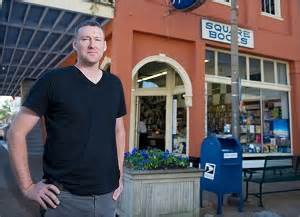A Quote by Gao Xingjian
I want to write a novel so profound that it would suffocate a fly.
Related Quotes
I don't impose political responsibilities on my fiction. The last thing I would ever want to do, for example, is write a novel that would appear to want to tell people what to think about the immigration debate, and I would never write a novel whose sole ambition was to give a "positive" view of immigrants. I'm for open borders, by the way - down with the nation state!
I would like to write a novel, or at least try to write one, although my motives are not entirely pure. For one thing, I get asked about writing novels so much that I feel guilty about never having written one. And although I have no strong desire to write a novel, I would hate not to try. That would just be silly. On the other hand, I hate the idea of slogging through something that turns out to be not good.
Writers write because they cannot allow the characters that inhabit them to suffocate them. These characters want to get out, to breathe fresh air and partake of the wine of friendship; were they to remain locked in, they would forcibly break down the walls. It is they who force the writer to tell their stories.
Objectifying your own novel while writing it never really helps. Instead, I guess while you're writing you need to think: This is the novel I want to write. And when you're done you need to think: This is what the novel I wanted to write feels like and reads like and looks like. Other people might call it sweeping or small, but it's the book you chose.
I don't think about the reader in any conscious way that impacts the writing, as far as, Hey, most readers would like this! But at the same time, if it were presented to me: "John, you're going to write a novel. It's going to take you a few years. When you're done with it, there's a law that no one's allowed to read it." I don't think I would write it. I want someone to read it!
Why do I like to write short stories? Well, I certainly didn't intend to. I was going to write a novel. And still! I still come up with ideas for novels. And I even start novels. But something happens to them. They break up. I look at what I really want to do with the material, and it never turns out to be a novel.







































